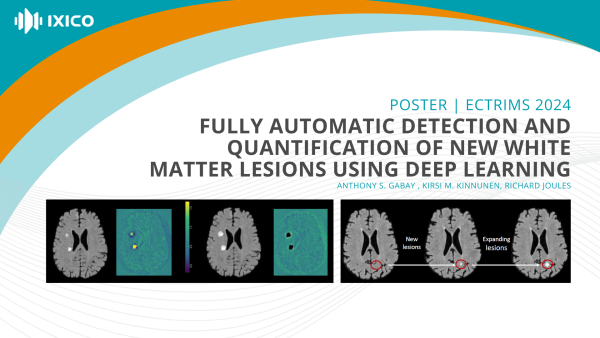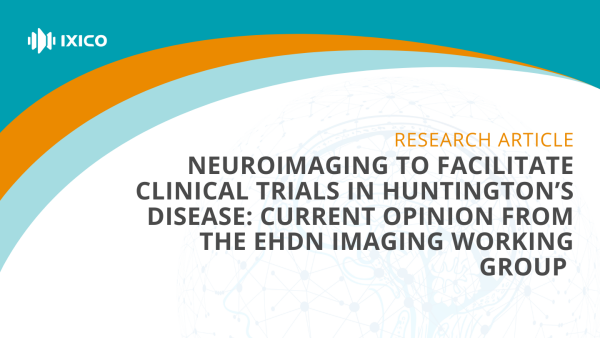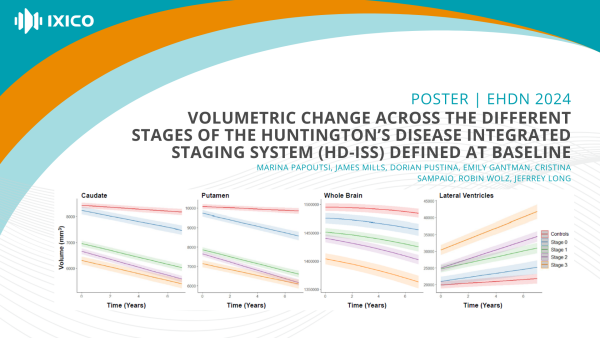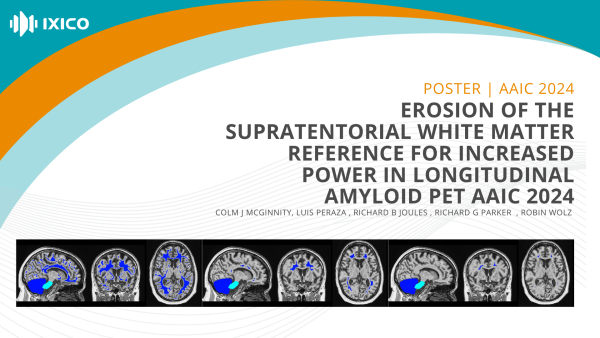News & Resources
Fully automatic detection and quantification of new white matter lesions using deep learning
Accurate detection, segmentation, and quantification of lesion dynamics in longitudinal MRI is crucial for monitoring disease progression in Multiple Sclerosis, and for evaluating the efficacy of therapeutic interventions. We present an efficient, automatic method utilising deep learning to assess lesion changes in FLAIR MRI with a high degree of accuracy.
Neuroimaging to Facilitate Clinical Trials in Huntington’s Disease: Current Opinion from the EHDN Imaging Working Group - IOS Press
This comprehensive overview of the roles of structural, functional, and diffusion MRI, PET, MRS, and MEG serves as a resource for effectively integrating neuroimaging methodologies into the design and execution of Huntington's disease clinical trials. The paper discusses their applications in patient selection, safety monitoring, and demonstrating efficacy.
Volumetric change across the different Stages of the Huntington’s disease Integrated Staging System (HD-ISS) defined at baseline
The HD Integrated Staging System enables classification of people with HD into four disease stages based on quantitative landmark assessments. Here we characterized volume change over time in the caudate nucleus, putamen, lateral ventricles, and whole-brain across participants starting in each of the different HD-ISS Stages at baseline and compared to healthy controls.
Erosion of The Supratentorial White Matter Reference for Increased Power in Longitudinal Amyloid PET
The use of the supratentorial white matter as a reference region, alone 1 7 or in composite 3 can facilitate the detection of subtle changes in amyloid plaque burden Investigators often erode or otherwise restrict the sWM labels to reduce the influence of signal “spill in” from grey matter 2 4 8 but the optimal extent…

Appointment of CEO - Bram Goorden
IXICO plc (AIM: IXI), the precision analytics company delivering intelligent insights in neuroscience, is pleased to announce that Bram Goorden will be appointed as Chief Executive Officer of the Company from 19 August 2024.

Further progress in HD consortium
Further progress in HD consortium Presentation of biomarker results and onboarding of new consortium partner IXICO plc (AIM: IXI), the medical imaging advanced analytics company delivering insights in neuroscience reports further progress in the Huntington's disease imaging harmonization (HD-IH) consortium deploying IXICO's AI powered IXIQ.

IXICO to support on Global Alzheimer's Platform Foundation's Bio-Hermes 2 trial
IXICO plc (AIM: IXI), the medical imaging advanced analytics company delivering insights in neuroscience announces that it has signed a contract with the Global Alzheimer's Platform Foundation® ("GAP") to support GAP's planned Bio-Hermes 2 trial. The contract value is worth over £1 million over a 48-month term.
41-48 of 183 results







